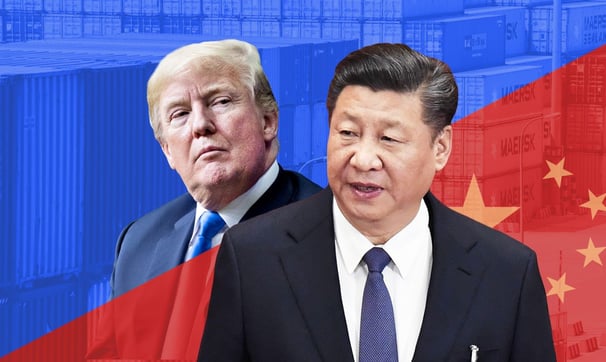Does China 'operate' Panama Canal, as Trump says?
COMMUNITY


In a recent statement, former U.S. President Donald Trump alleged that China “operates” the Panama Canal, a claim that has sparked widespread discussion and scrutiny. The Panama Canal is one of the most strategically significant waterways in the world, connecting the Atlantic and Pacific Oceans and facilitating nearly 6% of global maritime trade. But does China really control this vital global chokepoint, as Trump suggests? Here’s a closer look at the facts.
Understanding the Ownership of the Panama Canal
The Panama Canal is owned and operated by the Panamanian government through the Panama Canal Authority (ACP). In 1999, control of the canal was officially handed over to Panama by the United States, as stipulated in the 1977 Torrijos-Carter Treaties. Since then, Panama has managed the canal independently, with no direct control ceded to foreign governments.
China's Involvement in the Region
While China does not “operate” the Panama Canal, Chinese companies have a significant presence in the region. For example:
Port Operations: Chinese state-owned companies, such as Hutchison Ports, operate port facilities near the entrances of the canal. These facilities handle cargo and logistics but do not influence canal operations directly.
Trade Partnerships: China is one of the canal’s largest users, second only to the United States. Chinese vessels frequently transit the waterway, underscoring its importance to China’s trade routes.
Infrastructure Investments: In recent years, Chinese companies have invested heavily in infrastructure projects across Latin America, including Panama. This economic footprint has raised concerns about Beijing’s growing influence in the region.
Why the Misconception?
Trump’s claim likely stems from a broader narrative of Chinese influence. Beijing’s Belt and Road Initiative has seen massive investments in ports, railways, and other infrastructure worldwide, leading to fears that these economic ties could evolve into political leverage. However, experts argue that Panama retains full sovereignty over the canal, and the involvement of Chinese companies is limited to commercial operations around it, not its management or decision-making.
The U.S. Response
The U.S. has historically viewed the Panama Canal as a strategic asset, even after transferring control to Panama. As China’s presence in the region grows, Washington has expressed concerns about maintaining its influence. Some policymakers see Trump’s statement as a reflection of these broader geopolitical anxieties rather than an accurate depiction of the canal’s governance.
Conclusion
While Chinese companies play a role in port operations and are major users of the Panama Canal, they do not “operate” the canal itself. The waterway remains under the control of the Panamanian government through the ACP. Trump’s claim highlights growing tensions between the U.S. and China over influence in key global trade routes but oversimplifies the situation.
As global powers vie for economic and strategic advantage, the Panama Canal remains a critical focal point of international trade—and a symbol of Panama’s independence in navigating these complex dynamics.
